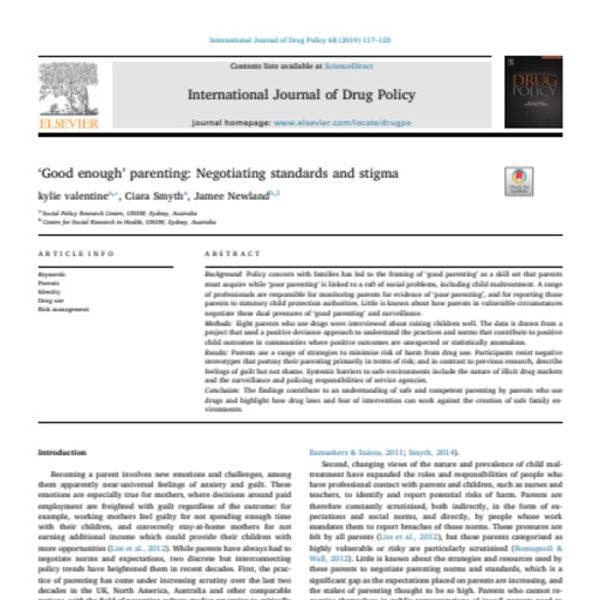‘Good enough’ parenting: Negotiating standards and stigma
By Kylie Valentine, Ciara Smyth, and Jamee Newland
Background: Policy concern with families has led to the framing of ‘good parenting’ as a skill set that parents must acquire while ‘poor parenting’ is linked to a raft of social problems, including child maltreatment. A range of professionals are responsible for monitoring parents for evidence of ‘poor parenting’, and for reporting those parents to statutory child protection authorities. Little is known about how parents in vulnerable circumstances negotiate these dual pressures of ‘good parenting’ and surveillance.
Methods: Eight parents who use drugs were interviewed about raising children well. The data is drawn from a project that used a positive deviance approach to understand the practices and norms that contribute to positive child outcomes in communities where positive outcomes are unexpected or statistically anomalous.
Results: Parents use a range of strategies to minimise risk of harm from drug use. Participants resist negative stereotypes that portray their parenting primarily in terms of risk; and in contrast to previous research, describe feelings of guilt but not shame. Systemic barriers to safe environments include the nature of illicit drug markets and the surveillance and policing responsibilities of service agencies.
Conclusion: The findings contribute to an understanding of safe and competent parenting by parents who use drugs and highlight how drug laws and fear of intervention can work against the creation of safe family environments.
Click here to read the full article (restricted access).
